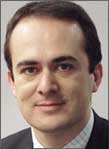Fund selectors are playing an increasingly important role in the market. Their criteria varies enormously, from determining a manager’s ‘passion’, to focusing on past performance. By Fiona Rintoul.
Humility is not a word one instinctively associates with top-performing fund managers. Nonetheless, it is one of six key selection criterion for Margaret Dobak, head of discretionary investment and banking solutions for Citi Private Bank EMEA, when she is choosing fund managers for the Citi private banking platform.
“Managers have to be able to admit when they were wrong,” she explains. “They have to be able to learn from their mistakes.”
The other five qualities that Dobak looks for are conviction, consistency, experience, team stability and proven ability. It’s a proprietary list. There will be overlap with other fund selectors, of course, but each company has its own philosophy and its own way of doing things.
 At Nomura International, for example, Garry Topp, director of equity derivatives, selects funds for inclusion in structured products, using a process that relies heavily on statistical analysis. This differentiates the Japanese bank from many fund of fund managers within asset management companies.
At Nomura International, for example, Garry Topp, director of equity derivatives, selects funds for inclusion in structured products, using a process that relies heavily on statistical analysis. This differentiates the Japanese bank from many fund of fund managers within asset management companies.
“Some fund of fund managers take a more qualitative than quantitative approach,” says Topp. “They go out of their way to know the portfolio manager. In the main, we don’t do that. We do engage with fund managers so they understand what role they have, but we don’t spend time having lunch or playing golf with them, preferring instead to concentrate on analysis.”
Another difference is that while fund of fund managers will often look to “blend different styles”, Topp looks for diversification. “If you look at our global emerging markets product, we analyse the underlying funds to make sure the six manager selections are different in what they do in order to achieve diversification,” he says. “We have more than 300 individual companies in the product. That’s proper diversification. Key to this is also to make sure that we do not have a de facto tracker fund – we look hard for outperformance.”
Fund of fund managers will also look for diversification, of course, and you can argue about just how different the two processes are.
But the fact remains that professional fund selectors, be they multimanagers, constructors of structured products, such as Topp, or platforms, play an increasingly important role in the market as intermediaries. It’s crucial for fund managers to understand what they want – and what they want can often be complex and heterogeneous.
Size matters
Another important consideration for Nomura’s Topp, for example, is size and liquidity. “From a structured funds perspective, you have to look at the size of the fund,” he says. “You don’t want to hold a large percentage of the fund, therefore large funds are more attractive.”
 But for the fund selectors that build Russell’s multimanager products, almost exactly the reverse is true. Ian Barnes, director of business solutions at Russell, says that some 70% of the managers on Russell’s books at the moment could be classed as boutiques. If they get too big, capacity becomes an issue.
But for the fund selectors that build Russell’s multimanager products, almost exactly the reverse is true. Ian Barnes, director of business solutions at Russell, says that some 70% of the managers on Russell’s books at the moment could be classed as boutiques. If they get too big, capacity becomes an issue.
“We are looking for boutiques that are willing to close their doors at a relatively low asset base,” says Barnes.
Russell is also at the other end of the cool-and-dispassionate analysis spectrum from investment banks such as Nomura. Russell has the numbers, of course, courtesy of its relationship with BNY Mellon Analytical Solutions, and it slices and dices them with the best of them, but what the consultant and multimanager is really looking for from a manager above all is “passion”.
“It’s absolutely vital, particularly at the boutique end of the industry,” says Barnes. “We have to believe these guys are highly motivated to come into the office and work long hours and achieve outperformance.”
This is heading in the same direction as the “conviction” that Dobak lists as one of her six selection criteria. Both Barnes and Dobak are looking for managers that have a strongly held view that they vigorously believe in – no wishy-washy jobsworth closet indexers for them.
“We are looking for independent thinking,” says Dobak. “How will they derive value? There has to be clear thinking and a clear strategy.”
How do they find these managers? The starting point for a fund selector such as Dobak is to know what she’s looking for. “You need to know what exposure you want to get and why,” she says. “That allows you to narrow down the universe. Then the questions and follow-up are more specific.”
Then it’s largely a question of applying the six criteria. “If you can get positive answers on those six points, then there’s a good chance of getting a fund on the platform that won’t spring too many surprises,” she says.
There is also flexibility, however. Citi might put a fund on the platform that doesn’t have a long track record, for example, provided it can see the story. Citi recently took on a Sustainable Asset Management climate change fund although it is new with almost no track record because the story was strong and SAM is “known for its environmental themes”.
And, of course, when there is a track record it has to be interpreted with care. The pitfalls of relying too heavily on past performance data are well documented. “It’s like driving looking in the rearview mirror,” says Barnes, who prefers to use past performance data “to help verify our opinion of a manager” rather than to form it.
Drilling past performance data in different ways provides useful information on how alpha was generated, how consistent managers are, and how well they performed in market downturns. But the bare numbers, almost everyone agrees, don’t tell you very much, particularly as a fund with excellent past performance might well have peaked.
Past performance
In the pensions arena in particular, where investments are being made for the long term, paying too much attention to short-term past performance targets can cause serious problems. Unfortunately, that doesn’t mean that people don’t do it.
“People leave managers too soon and hire managers who happen to have had good results in the past six months,” says Anton van Nunen, investment consultant at Van Nunen & Partners in the Netherlands. “This results in more volatility and more costs and people looking for index-oriented managers, which is also detrimental for the long-term results and for the pensioners, who are not at the table.”
This needs to change, in Van Nunen’s view, and he sees a solution for pension funds with e5bn or less under management in fiduciary management. But although there are now some e100bn of assets under fiduciary management in Europe and growth has been “explosive”, he isn’t confident that the problem is on its way to being solved.
“The financial press and regulators all have a short-term view,” he says. “People look at returns at very short notice – four times a year. Boards feel uncomfortable that they have to disappoint four times in a row.”
Russell’s Barnes also acknowledges this issue. Past performance may not be a great way to choose funds, but pension boards will still struggle to accept funds that have rotten recent performance or little by way of a track record.
“It’s very tough for trustees to hire managers who have a three- to five-year track record of underperforming,” says Barnes. “But we also recognise that Russell is being hired to choose managers that will outperform in the future. We therefore offer clients as deep a buylist as possible, including some managers with good recent performance and some with poor recent performance.”
That’s for the consulting clients. Within the multimanager products, Russell can go much more with its own convictions. “In funds of funds clients are buying a complete product,” says Barnes. “That allows us to be a lot more bold.”
Increasingly, Russell’s convictions are leading it in the direction of very new boutiques which have no track record. In order to maximise the benefit from the “anecdotal boutique effect”, whereby boutiques perform best in the first three to five years of their life, Russell likes to get in early, sometimes even before the boutique has officially opened its doors.
“When a boutique is brand new everyone in the firm is focused, they don’t need to worry so much about business management and there are relatively few assets under management so it’s nimble,” says Barnes. “What Russell is working on at the moment is identifying future pools of talent.”
That can involve going into a new firm as a seed investor or approaching a manager and asking them to run a particular mandate on Russell’s behalf. In such cases, the lack of a track record is compensated for by belief in the investment team. “In every instance, it will be a case of knowing the investment team from a prior role,” says Barnes.
This is a new kind of proactive fund selection. But however funds and managers are chosen, selection is never the end of the story. Once a manager is in a structured product or a fund of funds or on a platform, it can expect to be continuously monitored.
Performance is part of this, but periods of poor performance can generally be metabolised by professional fund selectors, provided a fund is sticking to its stated strategy; provided, in other words, the poor performance is explicable. The kind of events that will lead to a re-evaluation are a veering off strategy or a change to the investment team.
“The analysis you do initially will tell you if a fund is ‘star-driven’,” says Dobak. “Any manager departure will result in the fund being placed on the watchlist immediately.”
At such a time, service and communication, come strongly into play. Service is important right through the relationship’s lifetime, but when there’s a problem, like market turbulence, service can make the difference between being kept or being fired.
“The more volatility we have the more important service becomes,” says Dobak. “It’s a good test of a house: how well they deliver during times when things do go wrong. Do they act in a proactive manner? I expect an immediate call from the relationship manager if there are any problems.”
© fe September 2007





